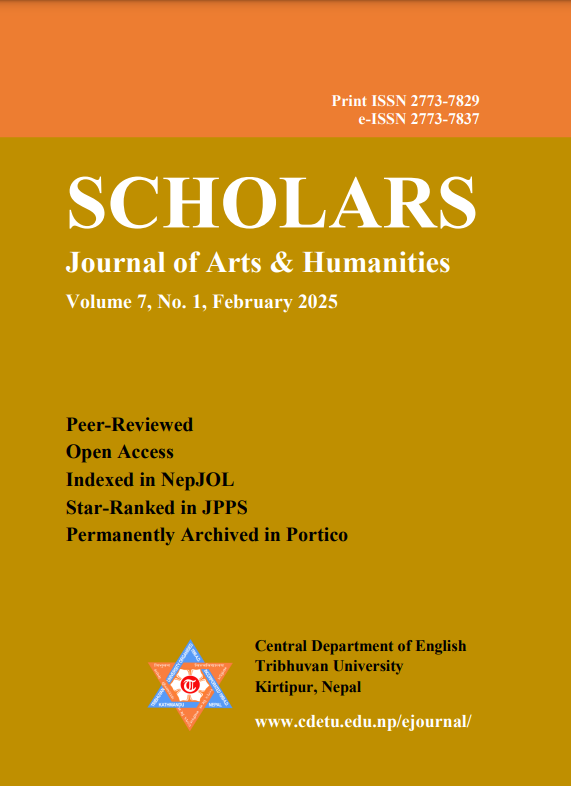Remembering the Trauma of Partition in Sadaat Hasan Manto’s Fictional Works: A Poststructural Critique
DOI:
https://doi.org/10.3126/sjah.v7i1.75677Keywords:
Partition, trauma, postcoloniality, linguistic nuancesAbstract
There have been several ways to uphold and disseminate information around the 1947 partition in India, such as writings through fiction, or non-fiction, media, casebooks, or collecting the real experiences of those who witnessed it; all are heading towards providing a better understanding of the partition trauma and violence. The trauma of partition has equally been a matter of articulation through language and the lacuna it leaves, as unraveled by many partition writers be it fictional or historical writings. Among these writers, Sadaat Hasan Manto is one of the most prominent voices who has captured the partition violence and the subsequent trauma of the survivors in great detail. This study is interested in the short stories of Manto which include “The Return,” “Ten Rupees,” and “Toba Tek Singh”. These short stories are deeply ingrained in the experiences of the partition victims and how the everyday ‘normal’ has been challenged through the sufferers’ physical and psychological abnormality. But as long as the problems of articulation through language are there, there will always remain a question of reliability. This language of fiction further gives birth to the very fictionality of language which always suffers from the ‘slippage’ of meaning. The problem of this research takes place in the distinctive presence or absence of language by Manto to signify the trauma of partition and how that linguistic presence (absence) offers a negotiation between fiction and testimony. Standing on the edge of linguistic flexibility and linguistic inarticulation, this study aims to analyze how Manto’s select short stories subverts the very definition of testimonial and historical truth. Keeping the aforementioned issue, the three short stories by Manto become the primary texts where the intention is to read between the lines and look for the linguistic nuances Manto enacted to testify the ‘truth’ of partition before his readers. Influenced by terms like testimony, witness, and silence, this paper questions how these short stories unravel the psychological experience of the trauma more than the historical or chronological reality.
Downloads
Downloads
Published
How to Cite
Issue
Section
License

This work is licensed under a Creative Commons Attribution 4.0 International License.
© Central Department of English, Tribhuvan University and Authors




